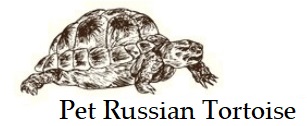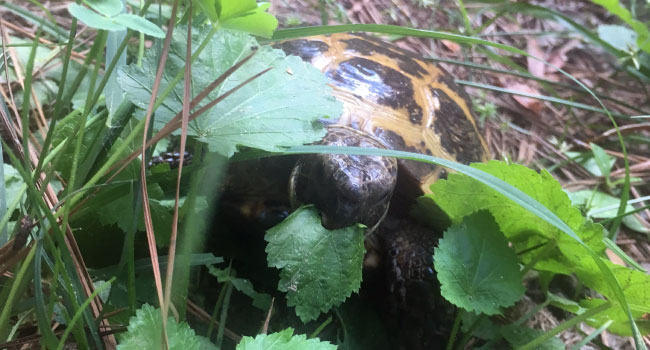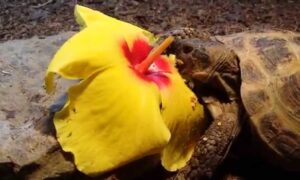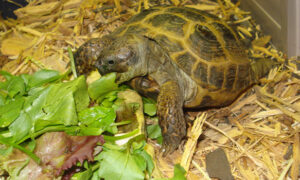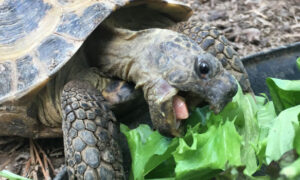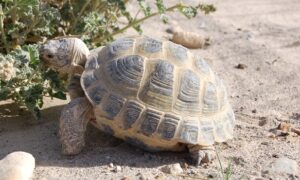Russian tortoises are grazing tortoises that feed primarily on broadleaf weeds, plants and grasses. The species requires a high fiber, low protein diet to remain healthy and long-lived.
Russian tortoises are herbivores. You want to offer a variety of weeds, greens and grasses. Avoid feeding a Russian tortoise fruits, vegetables and any animal proteins.
Weeds and Grass for Tortoises
Russian tortoises eat primarily weeds, however they will munch on grasses from time to time. You’ll find that safe weeds for Russian tortoises often grow in your own backyard.
- Bittercress
- Plantain (broad leaf and narrow leaf)
- Chicory
- Clovers
- Dandelion
- Deadnettle
- Lamb’s lettuce
- Mallow
- Thistle
Safe grass for tortoises include Bermuda grass, fescue, Kentucky blue grass, oat grass, oat grass and timothy grass.
Greens for Tortoises
You can supplement weeds and grasses with grocery store greens. Stick with high fiber greens and lettuces that will also provide plenty of nutrients.
Iceberg lettuce is ok to offer a Russian tortoise for added water intake, however it serves little to no nutritional value. Romaine lettuce is a step up, but it should be offered with a variety of other greens.
- Arugula
- Endive
- Escarole
- Grape leaf
- Oak leaf
- Radicchio
- Watercress
Fruit and Vegetables for Tortoises
You want to limit the amount of fruits and vegetables that you feed your Russian tortoise. Ideally, avoid feeding your Russian tortoise any fruits, however vegetables can be offered minimally.
Although, feeding a Russian tortoise fruits here and there won’t kill your tortoise, however they are very sugary and can cause severe digestive upset.
You can feed Russian tortoises vegetables occasionally, but keep them limited, making them treats. You can offer carrots, mushrooms, squash, zucchini.
Flowers for Tortoises
Flowers are healthy treats for Russian tortoises, as long as you offer safe flowers. Some flowers are toxic to tortoises.
Safe flowers for Russian tortoises include:
- California poppy
- Calendula
- Day Lilies
- Hibiscus
- Hosta
- Mallow
- Marigold
- Pansy
- Roses
- Violets
Tortoise Pellets for Russian Tortoises
Pellets are a great way to supplement your Russian tortoise’s diet. However, you want to avoid pellets that contain a lot of fruits, vegetables or animal proteins. Russian tortoises need a high fiber diet, low protein diet.
The best tortoise pellets include Mazuri, Zoo Med Grassland and Lugarti tortoise pellets. Compare different tortoise pellets before choosing which one will work best for your Russian tortoise.

Offer pellets one to three times a week for added variety and nutrition.
